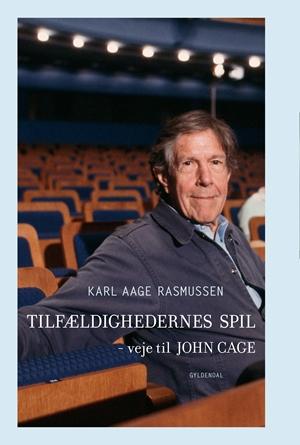
The game of Chance
John Cage
A concert hall yesterday, today or tomorrow. On the stage a grand piano. A person enters the stage, is met by applause, sits down at the piano and closes the lid over the keys. Sits still for 30 seconds, opens the lid and immediately closes it again. Sits motionless for exactly two minutes and 23 seconds and opens the lid again. Closes it and sits on the piano bench for a minute and 40 seconds. Opens the lid and leaves the stage.
Most people who know the name John Cage have heard of his silent piece 4 minutes, 33 seconds. A simple demonstration that there is always something to listen to, this time just not piano sounds. But always sounds, from the hall's ventilation, from wind outside or rain on the roof, the puzzle, breathing or coughing in the audience, the buzz of the ears, whatever. "My most important work", Cage insisted," because it's always at hand and never the same! When people attend a concert, they think something is to be done with or for them. But it is up to themselves to do something. Art is but an opportunity for us all to constantly change our mental setup and get more out of our time on earth."
The book attempts to show the overwhelming simplicity of Cage's thinking. Its humanism, its life-affirming utility value and its originality. A reader wrote to me, memorably, that the subtitle "roads to John Cage" should rather be "roads to yourself".




















